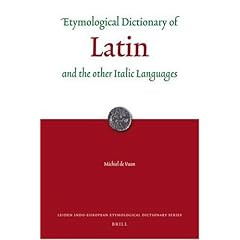At first glance, the Latin verb pa:sco appears to be one of your usual *ske/o presents. This, however, is not the case; one can tell by the lengthened grade of the root. Normally the *-ske/o- suffix is added to the zero-grade of the root, which would thus yield pasco, with a short 'a' < *ph2-sko instead of *peh2-s- > pa:sco. According to the Etymological Dictionary of Latin by Michiel de Vann, the -sc- in the Latin verb is an "enlarged variant of the 's-present'", this s-present being formed from the root *peh2- 'to protect'. How this 'enlarged variant' comes about, I do not know.
s-presents usually have a desiderative meaning, that is, they express desire or intent. That -sc- is a desiderative suffix on the root *peh2- makes some semantic sense; *peh2-s- would mean 'to want/intend to protect', which leads us to the meaning of pasco in Latin, namely 'to feed, nurture, nourish'
Now I wonder how many other verbs which show this 'enlarged variant' there are.

As a random aside: this series is fantastic. I can't wait for the Greek one which Beekes is preparing to come out.



3 comments:
Nice post. :)
The LIV claims that pāscō shows "R(e) vom Aor[ist]." Here, as usual, they do not feel the need to justify this leveling.
But then perhaps this is actually normal for Latin: nōscō also shows R(e), *ǵneh₃sḱe-, since *-n̩h₃C- outcomes ought not to show laryngeal "flava" in Latin.
(nāscōr by contrast ought to be totally regular from *ǵnh₁sḱór, not to mention old-looking—but the LIV claims it is "Ersatz für das ye-Präsens" and secondary and gives references: Rix, GS Kuryłowicz p. 400; Schwyzer, KZ 56 (1928-29) p. 22.)
Hmmm interesting.
Also, cre:sco and quie:sco show long vowels. But, 'disco' does not.
LIV gives some bizarre explanation for crēscō that I admit I can't really fathom—explains it as a secondary creation after the vocalism of crēvī, anyway, which is itself problematic. Meh. As for quiēscō, once again the LIV says: R(e) from the aorist.
Perhaps this "R(e) from aorist" is the mark of Latin's secondary extension of the *-sḱ- morph beyond its original distribution, eliminating an old (present?) verb in simple *-s-. We have *ǵneh₃-s- in Hittite kanešš-, too, after all. (Not so much for *kʷieh₁- or *ḱerh₃- ... if you accept those etymologies.)
Of course, there are some extensions of *-sḱ- that probably don't have R(e) but rather a normal-looking R(Ø)—namely replacements of old i-reduplicated R(Ø) *-h₁se(-) desideratives.
... now, so far as I know, I'm the only person who thinks this could happen, but hear me out. I think this is the only good explanation for the form of μιμνήσκω. The root is plainly aniṭ *men-, but the form looks seṭ. Nothing about *-sḱe- suggests it could do this. There is, on the other hand, plentiful Indic evidence for a formant *-h₁se(-) (I'm scare-bracketing the final morpheme-break because it's quite possible that the "thematic vowel" itself was the 3sg desinence) added to i-reduplicated R(Ø) roots: cíkīrṣati < *kʷi-kʷr-h₁se(-ti) (ignore the LIV's accented thematic vowel, as the absence of vowels from the verb probably has more to do with total deaccentuation).
Interestingly enough, the LIV gives a Hittite reflex for *kʷikʷr-h₁s-, one in *-šk-: kuwakuwarskizzi. The phonological details there look so dubious that I doubt this is particularly revealing, however, probably having a fairly unenlightening inner-Hittite explanation.
Post a Comment